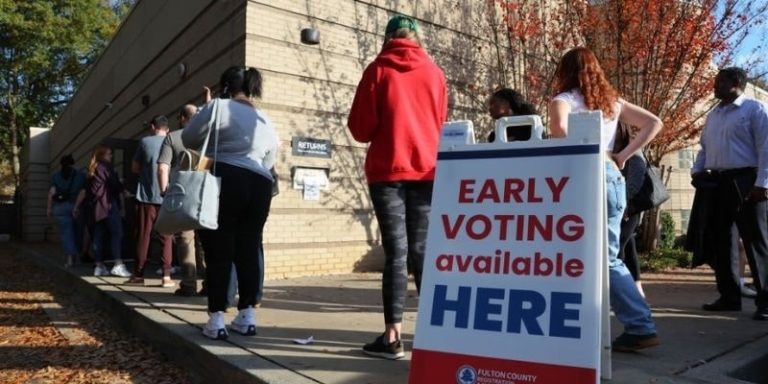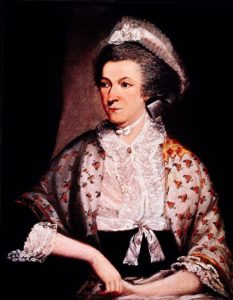This Week in History: November 6 – 12
It’s election week: Some of the nation’s most notable presidents were elected during this time.
By: Kelli Ballard | November 6, 2022 | 1195 Words

(Photo by Michael M. Santiago/Getty Images)
“There is nothing new in the world except the history you do not know.” ~ Harry S. Truman
Election Day and Presidential Elections
November is the time of year Americans go to the voting booths and choose their local, state, and federal leaders. During the years when a vote takes place, Election Day is the first Tuesday following the first Monday in November. This year, for instance, the first day of the month was a Tuesday, so Election Day falls on Tuesday, November 8. Midterm elections are happening in 2022; these occur halfway through a president’s four-year term. While we will not be choosing a new commander-in-chief this year, there have been some great leaders elected throughout history on November 8.
Abraham Lincoln
You may be surprised to hear that Lincoln was not a very popular leader during his time – this is mostly because he brought the US into a Civil War. On November 6, 1860, he was elected the 16th president, which was unexpected since his name was not even on the ballot in southern states. That he won re-election on November 8, 1864, was shocking even to Lincoln, who was convinced the Republican Party would not nominate him. He was so sure he would not be returning to office that he had his cabinet members sign a letter to swear their commitment to preserving the Union, no matter who became the next commander-in-chief. He also asked Frederick Douglass, a black abolitionist, to design a plan to help slaves escape before the vote. Despite his fear, Lincoln still won re-election by a landslide.
Franklin D. Roosevelt
FDR, as the former president was called, won his spot in the Oval Office on November 8, 1932, during the Great Depression. Since the 1860s, the Republican Party had mostly dominated the White House, but Roosevelt’s election brought in a new era. FDR also had four terms – the longest a US president has served. He is like to keep that record, as the 22nd Amendment has limited all presidents to a maximum of two terms since 1951.
John F. Kennedy
In one of the closest elections ever, John F. Kennedy (JFK) defeated Richard Nixon on November 8, 1960. The two candidates also held the first-ever televised presidential debate. According to a survey by YouGov, Kennedy is still the second-most popular of all US presidents, following only Lincoln. JFK was a young and charismatic leader, although his time in office was not easy. He was in charge during the Bay of Pigs invasion and the Cuban Missile Crisis. His life and time as president were cut short in 1963, as he was assassinated as his car drove through Dallas, Texas. Some of his ideas were put into action after his death, such as the mission to land men on the moon, and the Civil Rights Act of 1964.
Other Notable History Mentions
November 6, 1429: Henry VI was only eight years old when he was crowned king of England.
November 7, 1659: The Franco-Spanish war ended with the signing of the Treaty of the Pyrenees.
November 7, 1811: During the Battle of Tippecanoe Creek, General William H. Harrison’s troop of 1,000 Americans defeated the Shawnee Indians.
November 7, 1885: The Canadian Pacific was completed, becoming Canada’s first transcontinental railway.
November 7, 1962: After Richard Nixon lost the California governor election, he told reporters, “…just think how much you’re going to be missing. You won’t have Nixon to kick around anymore, because, gentlemen, this is my last press conference.” Later, he became president of the United States.
November 7, 1990: Elected to lead Virginia, L. Douglas Wilder became the first governor in US history who was African American.
 November 8, 1518: Spanish conquistador Hernándo Cortés and his troops captured Aztec Emperor Montezuma and conquered Mexico.
November 8, 1518: Spanish conquistador Hernándo Cortés and his troops captured Aztec Emperor Montezuma and conquered Mexico.
November 8, 1895: Wilhelm Roentgen discovered x-rays (electromagnetic rays).
November 9, 1872: The Great Boston Fire began, destroying nearly 800 buildings and costing more than $75 million.
November 9-10, 1938: In Germany, Nazi mobs burned and vandalized Jewish homes, shops, and synagogues in what was called Kristallnacht, or the Night of Broken Glass.
November 9, 1965: A circuit breaker tripped at a power plant on the Niagara River, causing the Great Blackout of the Northeast. It affected more than 30 million people, about one-sixth of the US population.
November 9, 1989: The Berlin Wall was finally opened after 28 years.
November 10, 1775: The US established the Marine Corps as part of the Navy. It became a separate entity on July 11, 1789.
November 10, 1871: David Livingstone, a missionary in Africa, had been missing for two years when explorer Henry M. Stanley found him and greeted him by asking, “Dr. Livingstone, I presume?”
November 11, 1918: The Armistice was signed during World War I, becoming effective at 11 a.m., which means it occurred at the 11th hour of the 11th day of the 11th month. Today, this date is known in the US as Veterans Day. At 11 a.m., there is a moment of silence to honor and remember those who have lost their lives in the line of duty.
November 11, 1938: God Bless America, by Irving Berlin, was first performed and later became a patriotic song for Americans.
November 12, 1867: Mount Vesuvius in Italy erupted, an event that lasted for several months.
Famous Birthdays
John Philip Sousa (November 6, 1854) was born in Washington, DC. He was a conductor and composer, most known for The Stars and Stripes Forever and Semper Fidelis marches.
James Naismith (November 6, 1861) was born in Almonte, Ontario, Canada. He invented the game of basketball.
Marie Curie (November 7, 1867) was born in Warsaw, Poland. She and her husband discovered Radium and won the Nobel Prize for physics.
Billy Graham (November 7, 1918) was born near Charlotte, North Carolina. He was known worldwide as a Christian evangelist.
Edmund Halley (November 8, 1656) was born in London. An astronomer and mathematician, he first saw the Great Comet of 1682 (Halley’s Comet) and predicted its return in 1758. The comet usually appears every 76 years or so. It is next expected in 2061.
Bram Stoker (November 8, 1847) was born in Dublin, Ireland. He is the author of Dracula.

Abigail Adams (Photo by: Universal History Archive/Universal Images Group via Getty Images)
Margaret Mitchell (November 8, 1900) was born in Atlanta, Georgia. She wrote the novel Gone with the Wind.
Christiaan Barnard (November 8, 1922) was born in Beaufort West, South Africa. He led the team that performed the first successful heart transplant in 1967.
Stanford White (November 9, 1853) was born in New York City. An architect, he designed several famous areas and buildings, including the Washington Arch and New York’s old Madison Square Garden.
Spiro Agnew (November 9, 1918) was born in Baltimore, Maryland. He was Richard Nixon’s vice president from 1969-1973.
Richard Burton (November 10, 1925) was born in Pontrhydyfen, South Wales, as Richard Jenkins. He was considered one of the greatest actors of his time.
Abigail Adams (November 11, 1744) was born in Weymouth, Massachusetts. She was John Adams’ wife, making her the second first lady of the US.
George S. Patton (November 11, 1885) was born in San Gabriel, California. He was a well-known general during World War II.
Auguste Rodin (November 12, 1840) was born in Paris. A sculptor, he is best known for his The Thinker and St. John the Baptist Preaching statues.
Grace Kelly (November 12, 1929) was born in Philadelphia, Pennsylvania. An award-winning actress, she left Hollywood to marry Prince Rainier of Monaco. She became Princess Grace.
















